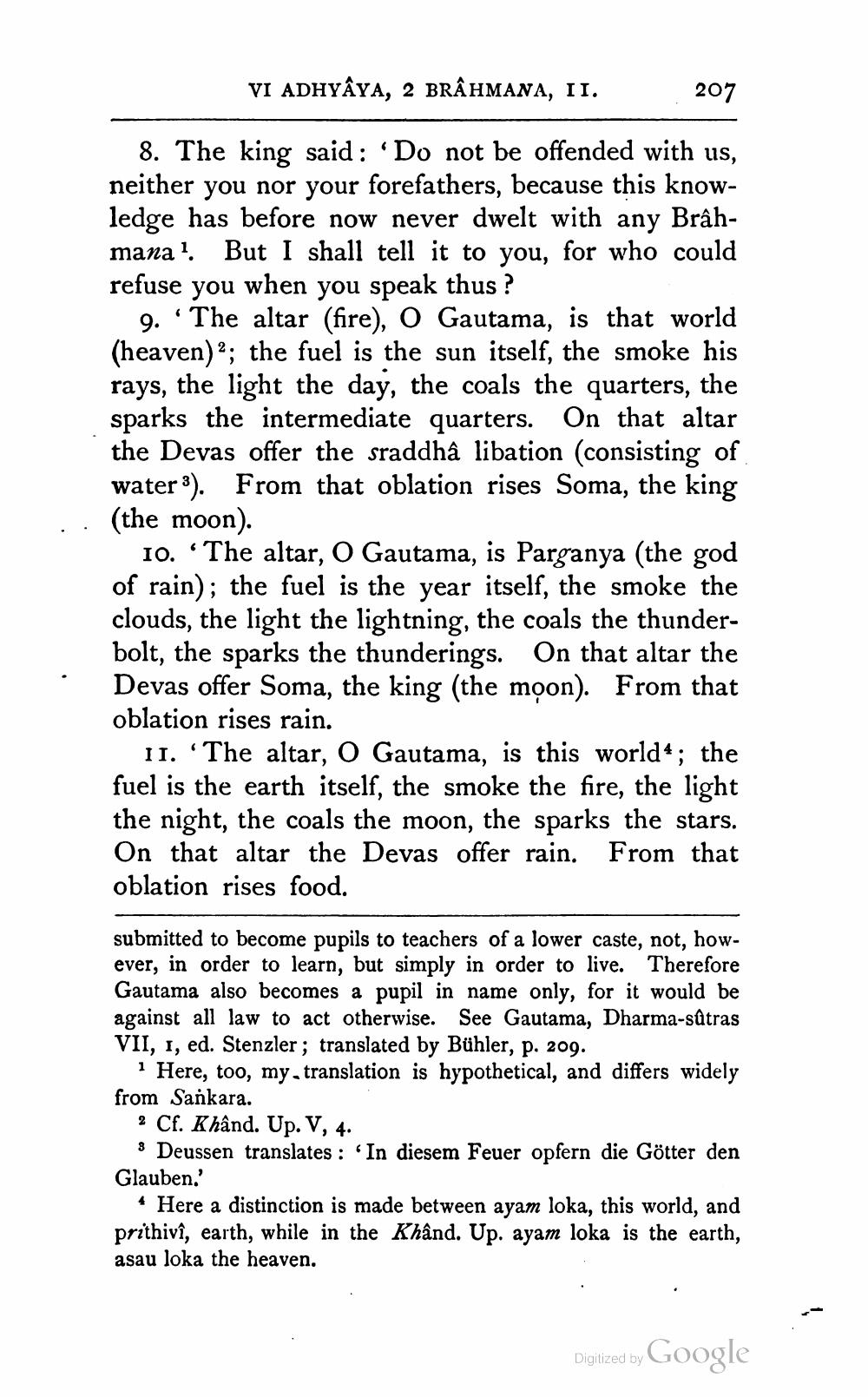________________
VI ADHYAYA, 2 BRAHMANA, II.
207
8. The king said: 'Do not be offended with us, neither you nor your forefathers, because this knowledge has before now never dwelt with any Brâhmana 1 But I shall tell it to you, for who could refuse you when you speak thus ?
6
9. The altar (fire), O Gautama, is that world (heaven); the fuel is the sun itself, the smoke his rays, the light the day, the coals the quarters, the sparks the intermediate quarters. On that altar the Devas offer the sraddhâ libation (consisting of water 3). From that oblation rises Soma, the king (the moon).
10. The altar, O Gautama, is Parganya (the god of rain); the fuel is the year itself, the smoke the clouds, the light the lightning, the coals the thunderbolt, the sparks the thunderings. On that altar the Devas offer Soma, the king (the moon). From that oblation rises rain.
II. The altar, O Gautama, is this world1; the fuel is the earth itself, the smoke the fire, the light the night, the coals the moon, the sparks the stars. On that altar the Devas offer rain. From that oblation rises food.
submitted to become pupils to teachers of a lower caste, not, however, in order to learn, but simply in order to live. Therefore Gautama also becomes a pupil in name only, for it would be against all law to act otherwise. See Gautama, Dharma-sûtras VII, 1, ed. Stenzler; translated by Bühler, p. 209.
1 Here, too, my translation is hypothetical, and differs widely from Sankara.
2 Cf. Khând. Up. V, 4.
› Deussen translates: 'In diesem Feuer opfern die Götter den Glauben.'
Here a distinction is made between ayam loka, this world, and prithivî, earth, while in the Khând. Up. ayam loka is the earth, asau loka the heaven.
Digitized by
Google




